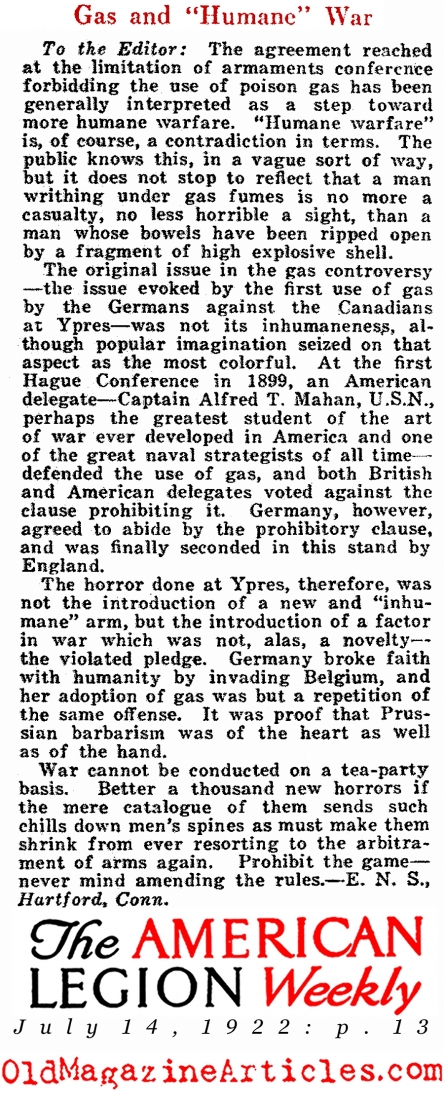A brief article from the 1921 pages of CURRENT OPINION MAGAZINE about J.B.S. Haldane (1892 – 1964), formerly a British combatant of the Great War who became a chemist (and pioneer geneticist) during the inter-war years studying not merely the effectiveness of poison gas but the question as to whether the weapon was more humane than bullets and artillery shells:
"If it is right for me to fight my enemy with a sword, it is right for me to fight him with mustard gas; if the one is wrong, so is the other. The use of mustard gas in war on the largest possible scale would render it less expensive of life and property, shorter, and more dependent on brains rather than numbers... The future lies with poisonous smoke made from arsenic compounds and with mustard gas. Of the latter, he says, it kills one man for every forty it puts out of action, whereas, shells kill one for every three."
His musings concerning atomic energy are referred to as are some of his quack-theories regarding the effects of gas warfare on people with dark skin.
Click here to read about the new rules for warfare that were written as a result of the First World War - none of them pertain to poison gas.
Click here to read more about gas warfare during World War One.
